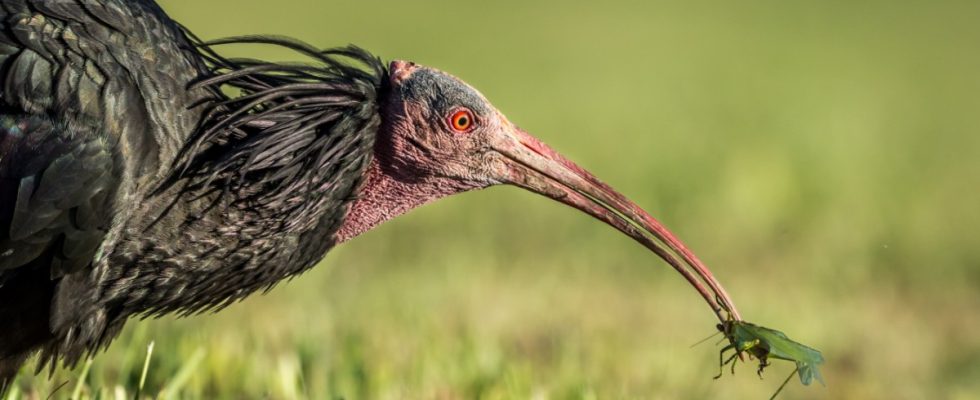There is said to be an endangered species that is said to have a certain longing for Tuscany and a preference for Sweden. Anyone who immediately thinks of the Social Democrats is of course completely wrong. Because they are not in acute danger of extinction in Bavaria, but only recently achieved an election result in the upper single-digit percentage range, which ensures their survival in the state parliament for a full five years. However, they can no longer afford a real Tuscan faction, and Sweden is now also ruled by the right-wing camp. The Social Democrats are certainly very saddened by the issue with Sweden in particular. Completely in contrast to the Burghausen bald ibises. They don’t seem to care in a very dangerous way.
These northern bald ibises should also take a little care of themselves. After all, they supposedly became extinct in Central Europe during the 17th century, and the very last of these strange birds in the world, which still followed its migratory nature, probably disappeared ten years ago somewhere between Syria and Ethiopia. Since the State Horticultural Show in 2004, there has been a northern bald ibis colony in Burghausen, Upper Bavaria, as part of a reintroduction project that now has six locations in Germany, Austria, Switzerland and Italy, plus a suitable lagoon in southern Tuscany as a wintering area.
The northern ibises are first shown where life is headed by people in light aircraft.
(Photo: Northern Bald Ibis Project)
However, the young birds raised by humans must first be flown there with a light aircraft until they are fairly oriented themselves. That has actually always worked well in the end, but this autumn a good dozen of Burghausen’s local heroes and some of their peers from Kuchl near Salzburg made a serious mistake in the direction. Instead of heading south over the Alps, they apparently made it easy for themselves and flew practically straight as an arrow north without giving any reason.
Only two animals, who had already been to Tuscany themselves and apparently wanted to go there again, turned around in time. The others are now pecking around in the ground somewhere in northern Germany, Denmark and near Jönköping in Sweden, which isn’t a problem as long as it isn’t frozen yet. If the birds can somehow be separated from their human keepers up there, their journey to their proper winter quarters will now be another 1,300 kilometers longer. In the long term, the same thing will hopefully apply to them as it does to some election campaign tourists deep in the vast Bavarian region: detours increase your local knowledge.

